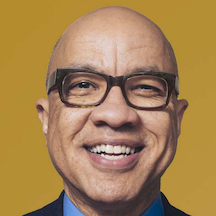 For more than a half century, the Ford Foundation Fellowship Program has sought to increase the diversity of the nation’s college and university faculties by increasing their ethnic and racial diversity, maximize the educational benefits of diversity, and increase the number of professors who can and will use diversity as a resource for enriching the education of all students. Predoctoral, dissertation, and postdoctoral fellowships were awarded in a national competition administered by the National Academies of Sciences, Engineering, and Medicine on behalf of the Ford Foundation.
For more than a half century, the Ford Foundation Fellowship Program has sought to increase the diversity of the nation’s college and university faculties by increasing their ethnic and racial diversity, maximize the educational benefits of diversity, and increase the number of professors who can and will use diversity as a resource for enriching the education of all students. Predoctoral, dissertation, and postdoctoral fellowships were awarded in a national competition administered by the National Academies of Sciences, Engineering, and Medicine on behalf of the Ford Foundation.
In 2012, the foundation committed $100 million to the National Academies to continue the Ford Fellowships program for an additional 10 years. Since the program began in 1967, the fellowships have supported more than 6,000 scholars.
 Recently, Darren Walker, president of the Ford Foundation, announced that the long-running program will be discontinued. The foundation explained that other groups have stepped up their support for higher education allowing the Ford Foundation to “redirect support toward traditionally underfunded areas of work in social and racial justice.”
Recently, Darren Walker, president of the Ford Foundation, announced that the long-running program will be discontinued. The foundation explained that other groups have stepped up their support for higher education allowing the Ford Foundation to “redirect support toward traditionally underfunded areas of work in social and racial justice.”
Walker stated that “we recognized the need to invest more deeply in movement-building work — an essential catalyst for social change that receives only a fraction of racial equity funding. As a result, we came to the difficult conclusion that we would wind down the Ford Fellowships program by 2028.”
The current funding provides for a new round of fellowships to be awarded in 2023 and a limited number of awards to be made in 2024. The new cohorts of Ford Fellows and all currently awarded Ford Fellows will remain supported through the end of their fellowship terms.
President Walker noted that “this was a painful sacrifice, but a necessary one. We understand and respect that some may disagree with our judgment. To be clear, no one is declaring victory for diversity and equity in higher education — not in the United States, not around the world. The academy neither fairly reflects the former nor fully embodies the latter. Clearly, we must hold higher-education institutions accountable for the persistent lack of diversity in tenured and leadership positions, despite a robust pipeline of diverse, talented scholars. Nonetheless, our view remains: Thanks in large part to our extraordinary community of Ford Fellows — through their scholarship and mentorship — we see the seeds of change taking root, and a new ecosystem of support emerging around them. For us, therefore, the time has come to adapt and evolve — to recenter our support for a new generation of individuals, ideas, and institutions that are leading the way forward from inequality to justice.”
Walker joined the Ford Foundation in 2010 and was named president in 2013. Earlier, he was a vice president at the Rockefeller Foundation, overseeing global and domestic programs. In the 1990s, he was COO of the Abyssinian Development Corporation, Harlem’s largest community development organization. He holds a bachelor’s degree and a juris doctorate from the University of Texas at Austin.

